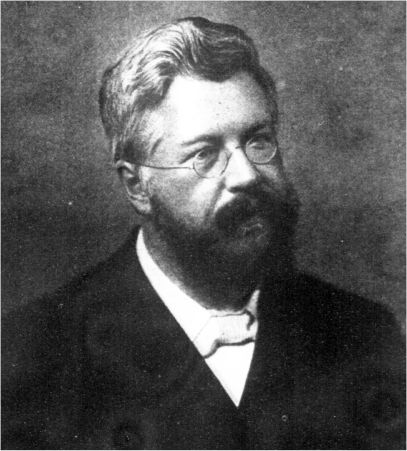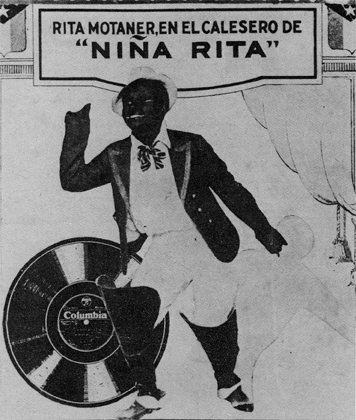|
1894 In Music
Events in the year 1894 in music. Specific locations *1894 in Norwegian music Events * March 14 – Johan Svendsen conducts the world premiere of Carl Nielsen's Symphony No. 1 (Nielsen), Symphony No. 1 in Copenhagen. * April 19 – Jules Massenet's opera "Werther" is staged in New York City. * September 22 – Opening of the Teatro Lirico (Milan), Teatro Lirico Internazionale in Milan. * December 22 – Claude Debussy's ''Prélude à l'après-midi d'un faune'' is premiered in Paris Published popular music * "Airy, Fairy Lillian" w. Tony Raymond m. Maurice Levi * "And Her Golden Hair Was Hanging Down Her Back" w. Monroe H. Rosenfeld m. Felix McGlennon * "At Trinity Church I Met My Doom" w.m. Fred Gilbert * "Don't Be Cross" by Karl Zeller from the operetta ''The Mine Foreman (operetta), Der Obersteiger'' * "Forgotten" w. Flora Wulschner m. Eugene Cowles * "He's Got To Keep A-Movin'" w.m. T. W. Connor * "His Last Thoughts Were Of You" w. Edward B. Marks m. Joseph W. Stern * ... [...More Info...] [...Related Items...] OR: [Wikipedia] [Google] [Baidu] |
William Jerome
William Jerome Flannery (September 30, 1865 – June 25, 1932) was an American songwriter, born in Cornwall-on-Hudson, New York, of Irish immigrant parents: Mary Donnellan and Patrick Flannery. He collaborated with numerous well-known composers and performers of the era but is best remembered for his decade-long association with Jean Schwartz with whom he created many popular songs and musical shows in the 1900s and early 1910s. Early career By the time he was seventeen, Jerome was singing and dancing in vaudeville. He toured with minstrel shows and performed in blackface Blackface is the practice of performers using burned cork, shoe polish, or theatrical makeup to portray a caricature of black people on stage or in entertainment. Scholarship on the origins or definition of blackface vary with some taking a glo .... He met Eddie Foy while on tour and they became friends; the two would work together often throughout their careers. By the late 1880s Jerome was performi ... [...More Info...] [...Related Items...] OR: [Wikipedia] [Google] [Baidu] |
Adrian Ross
Arthur Reed Ropes (23 December 1859 – 11 September 1933), better known under the pseudonym Adrian Ross, was a prolific English writer of lyrics, contributing songs to more than sixty British musical comedies in the late 19th and early 20th centuries. He was the most important lyricist of the British stage during a career that spanned five decades. At a time when few shows had long runs, nineteen of his West End shows ran for over 400 performances. Starting out in the late 1880s, Ross wrote the lyrics for the earliest British musical theatre hits, including '' In Town'' (1892), ''The Shop Girl'' (1894) and ''The Circus Girl'' (1896). Ross next wrote the lyrics for a string of hit musicals, beginning with '' A Greek Slave'' (1898), '' San Toy'' (1899), '' The Messenger Boy'' (1900) and '' The Toreador'' (1901) and continuing without a break through World War I. He also wrote the English lyrics for a series of hit adaptations of European operettas beginning with '' The Merr ... [...More Info...] [...Related Items...] OR: [Wikipedia] [Google] [Baidu] |
Fred Weatherly
Frederic Edward Weatherly, King's Counsel, KC (4 October 1848 – 7 September 1929) was an English lawyer, author, lyricist and broadcaster. He was christened and brought up using the name Frederick Edward Weatherly, and appears to have adopted the spelling 'Frederic' later in life. He is estimated to have written the lyrics to at least 3,000 popular songs, among the best-known of which are the sentimental ballad "Danny Boy" set to the tune "Londonderry Air", the religious "The Holy City (song), The Holy City", and the wartime song "Roses of Picardy". Life and career Weatherly was born and brought up in Portishead, Somerset, England, the eldest son in the large family of Frederick Weatherly (1820–1910), a medical doctor, and his wife, Julia Maria, ''née'' Ford (1823–98). His birth was registered in the Bedminster, Bristol, Bedminster district of Bristol in the fourth quarter of 1848, and the 1851 census shows the family living at 5 Wood Hill, Portishead. He was educated at ... [...More Info...] [...Related Items...] OR: [Wikipedia] [Google] [Baidu] |
The Little Lost Child
"The Little Lost Child" is a popular song of 1894 by Edward B. Marks and Joseph W. Stern, with between one and two million copies in sheet music sales. Also known after its first three words as "A Passing Policeman", it is usually considered to have been the first work promoted as an illustrated song (an early precursor of the music video). The song's success has also been credited to its performance by Lottie Gilson and Della Fox. Marks was a button salesman who wrote rhymes and verse, and Stern, a necktie salesman who played the piano and wrote tunes. Together they formed a music publishing house called Joseph W. Stern & Co. and became an important part of the Tin Pan Alley sheet music publishing scene. The lyrics, written by Marks and based on a newspaper report, concern a lost little girl found by a policeman, who is then reunited with his estranged wife after it transpires that he is the girl's father. Stern wrote the music for piano and vocals. Joseph W. Stern & Co. ... [...More Info...] [...Related Items...] OR: [Wikipedia] [Google] [Baidu] |
I've Been Working On The Railroad
"I've Been Working on the Railroad" is an American folk song. The first published version appeared as "Levee Song" in ''Carmina Princetonia'', a book of Princeton University songs published in 1894. The earliest known recording is by The Shannon Quartet, released by Victor Records in 1923. Music The melody of the opening line of "I've Been Working on the Railroad" may have been inspired by the very similar melody at the beginning of the cello solo, about one minute into Franz von Suppé's 1846 '' Poet and Peasant'' overture. Lyrics The verses that generally constitute the modern version of the song are: The 1894 version includes one verse very much like the modern song, though in Minstrel dialect, with an intro that is no longer sung and a very different second verse: The "Someone's in the Kitchen with Dinah" section, with its noticeably different melody, is actually an older song that has been absorbed by "I've Been Working on the Railroad". It was published as "Old J ... [...More Info...] [...Related Items...] OR: [Wikipedia] [Google] [Baidu] |
George "Honey Boy" Evans
George Evans (10 March 1870 – 5 March 1915) known as "Honey Boy" Evans was a Wales, Welsh-born songwriter, comedian, entertainer, and musician active in the United States in the late 19th and early 20th centuries. Biography Evans was born in Pontlottyn, Wales in 1870.No byline (March 6, 1915)"HONEY BOY" EVANS DEAD ''New York Times'' :11 In 1910, he bought the Cohan & Harris Minstrels organization for $25,000, that were known as the Honey Boy Minstrels. He was composer of "In the Good Old Summer Time"; Ren Shields was the Lyricist. He had a well known minstrel show troupe, the "Honey Boy Minstrels". He debuted ''The Memphis Blues'' on vaudeville. Evans became a great baseball fan after moving to America as a young man. He spent two weeks in March 1908 with the Philadelphia Phillies at spring training in Savannah, Georgia where he stayed and practiced with the team and socialized with the players. The Phillies named their team of younger players the "Honey Boys" in intrasquad ga ... [...More Info...] [...Related Items...] OR: [Wikipedia] [Google] [Baidu] |
Henry W
Henry may refer to: People and fictional characters * Henry (given name), including lists of people and fictional characters * Henry (surname) * Henry, a stage name of François-Louis Henry (1786–1855), French baritone Arts and entertainment * ''Henry'' (2011 film), a Canadian short film * ''Henry'' (2015 film), a virtual reality film * '' Henry: Portrait of a Serial Killer'', a 1986 American crime film * ''Henry'' (comics), an American comic strip created in 1932 by Carl Anderson * "Henry", a song by New Riders of the Purple Sage Places Antarctica * Henry Bay, Wilkes Land Australia * Henry River (New South Wales) * Henry River (Western Australia) Canada * Henry Lake (Vancouver Island), British Columbia * Henry Lake (Halifax County), Nova Scotia * Henry Lake (District of Chester), Nova Scotia New Zealand * Lake Henry (New Zealand) * Henry River (New Zealand) United States * Henry, Illinois * Henry, Indiana * Henry, Nebraska * Henry, South Dakota * Henry Count ... [...More Info...] [...Related Items...] OR: [Wikipedia] [Google] [Baidu] |
Eugene Cowles
Eugene Cowles (January 17, 1860 – September 22, 1948) was a Canadian operetta singer and actor. He began recording in 1898 and continued through 1921. He is most commonly associated with the ballad "Forgotten" which was recorded by a variety of artists in the first decade of the 20th century. Composed by Cowles himself, his original 1906 recording of the song for Victor stayed in print for over two decades. He created the role of Sándor in ''The Fortune Teller'' in 1898. Honors His 1898 recording of Victor Herbert's "Gypsy Love Song" was added to the National Recording Registry The National Recording Registry is a list of sound recordings that "are culturally, historically, or aesthetically significant, and inform or reflect life in the United States." The registry was established by the National Recording Preservation ... in 2004. References External links * 1860 births 1948 deaths Canadian male singers Pioneer recording artists {{Canada-singer-s ... [...More Info...] [...Related Items...] OR: [Wikipedia] [Google] [Baidu] |
The Mine Foreman (operetta)
''The Mine Foreman'' (German: ''Der Obersteiger'') is an operetta composed by Carl Zeller with a libretto by Ludwig Held and Moritz West. It premiered on 5 January 1894 at the Theater an der Wien in Vienna Vienna ( ; ; ) is the capital city, capital, List of largest cities in Austria, most populous city, and one of Federal states of Austria, nine federal states of Austria. It is Austria's primate city, with just over two million inhabitants. .... In 1952 the libretto served as the basis for a film '' The Mine Foreman''.Dassanowsky p.151 The operetta is rarely performed today, but the aria “Sei nicht bös” (“Don’t be cross”) has become a concert staple. Bibliography * Robert Dassanowsky. ''Austrian Cinema: A History''. McFarland, 2005. References Operettas German-language operettas Operas Operas by Carl Zeller 1894 operas {{German-opera-stub ... [...More Info...] [...Related Items...] OR: [Wikipedia] [Google] [Baidu] |
Operetta
Operetta is a form of theatre and a genre of light opera. It includes spoken dialogue, songs and including dances. It is lighter than opera in terms of its music, orchestral size, and length of the work. Apart from its shorter length, the operetta is usually of a light and amusing character. The subject matter may portray "lovers' spats, mistaken identities, sudden reversals of fortune, and glittering parties". It sometimes also includes satirical commentaries. "Operetta" is the Italian diminutive of "opera" and was used originally to describe a shorter, perhaps less ambitious work than an opera. Operetta provides an alternative to operatic performances in an accessible form targeting a different audience. Operetta became a recognizable form in the mid-19th century in France, and its popularity led to the development of many national styles of operetta. Distinctive styles emerged across countries including Austria-Hungary, Germany, England, Spain, the Philippines, Mexico, Cuba, ... [...More Info...] [...Related Items...] OR: [Wikipedia] [Google] [Baidu] |



